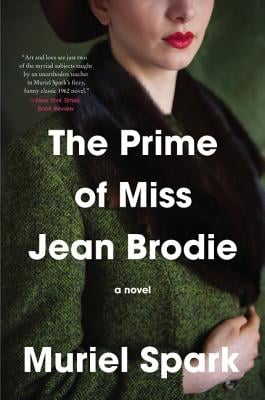APS TOGETHER
Day 5
Ch. 3, pp. 55-70 (through “with her little pig-like eyes”)
October 5, 2020 by Sarah Shun-lien Bynum
Spark in The New Yorker, 5/93: “Well, suspense isn’t just holding it back from the reader. Suspense is created even more by telling people what’s going to happen. Because they want to know how. Wanting to know what happened is not so strong as wanting to know how.”
A sympathetic detail: Miss Brodie sagging gratefully against the door once she’s within the safety of her own classroom, having run the gauntlet of the Junior school corridors. Maintaining aloofness & superiority with scornful colleagues can take a toll.
p57-58: “Monica’s anger” to “past my prime.” In less than a page, we flit effortlessly through FIVE distinct time periods: the girls in ’31; Rose at 16; Monica in late 50s; Sandy & Miss B at tea; the moment (?) when Sandy learns Lloyd really did kiss.
Miss B, diminished: in another flash-forward to after the war, the sight of her “shrivelled & betrayed” in her musquash coat so unsettles me that I want to look away and stare at the hills, like Sandy. Her cancer & early death leave me curiously cold here.
Teachers need epithets too. Mr. Lowther, shy and short-legged; Mr. Lloyd, golden-locked and one-armed. And Miss Gaunt? Gaunt. Did Spark really just do that? She is so punk rock. Short, fast, brutal, irreverent, gleefully repeating the same three chords.
Just in case you might have been wondering who betrayed Miss Brodie, Spark quickly destroys that conventional source of suspense. And does so in a typically nonchalant manner: “It is seven years, thought Sandy, since I betrayed this tiresome woman.”
Thomas Mallon: “When Spark inclines to greater intimacy, it is not toward the character but toward the reader.” The casual mention of Sandy’s betrayal makes us privy to information that only Sandy and the omniscient narrator possess; it’s our three-way secret.
It’s difficult for me to resist Miss Brodie in those moments when she gives voice to my own prejudices in such a commonsensical & amusing way: her dismay, for instance, that Eunice “was taking a suspiciously healthy interest in international sport.”
